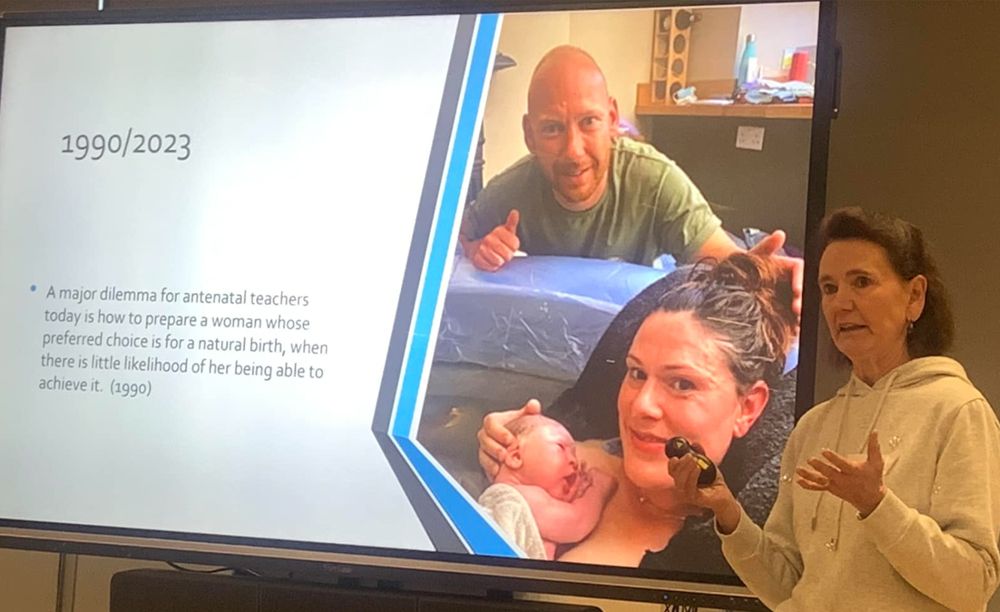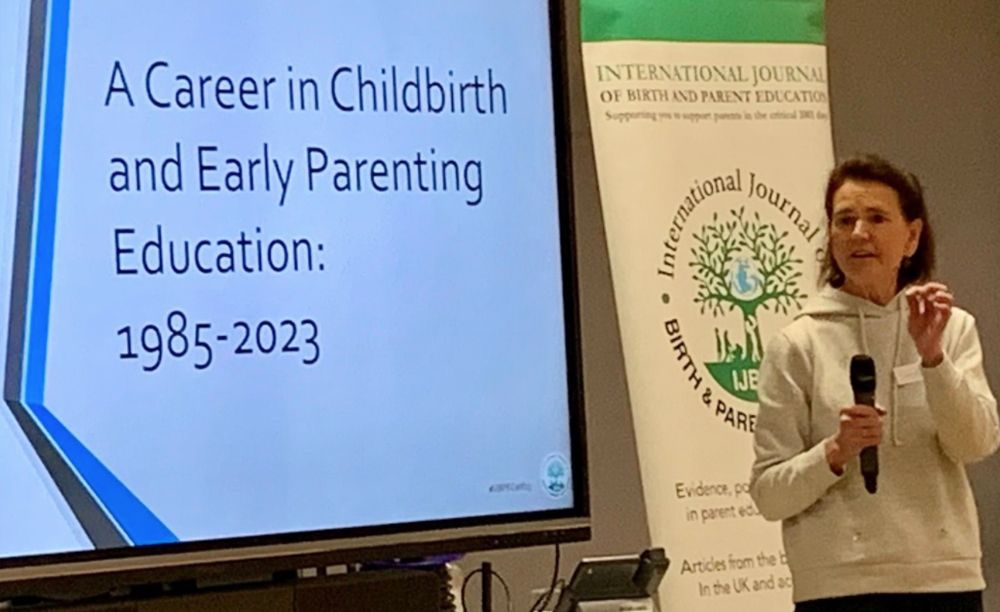IJBPE Conference 2023
The 23rd January saw perinatal educators, midwives, early years practitioners and a host of people working in the critical 1000 days, coming together at the IJBPE conference held at Worcester University.
You can find four of the papers that were presented at the conference under the CONFERENCE tab, or click here.
With talks covering perinatal education, infant formula marketing, normal birth after Ockenden, provision for migrant women, working with black birthing women and the 1001 days the day was both thought provoking and challenging as well as uplifting and inspiring. The conference had such good feedback we are looking to run another next year!
All of the issues were of concern to perinatal educators and every speaker related their talk to use in classes and practice.
We opened with a talk by Ann Jordan, Provost of the University, who thanked Mary for her extraordinary role in the perinatal field and reflected the esteem in which she is held.
From Sydney, Australia, we heard from Jane Svensson, new Co-Editor of the Journal and met her Co-Editor Allie Sewell who introduced herself and her work. She really enjoyed spending time meeting delegates and finding out what they would like to see in the journal moving forward.
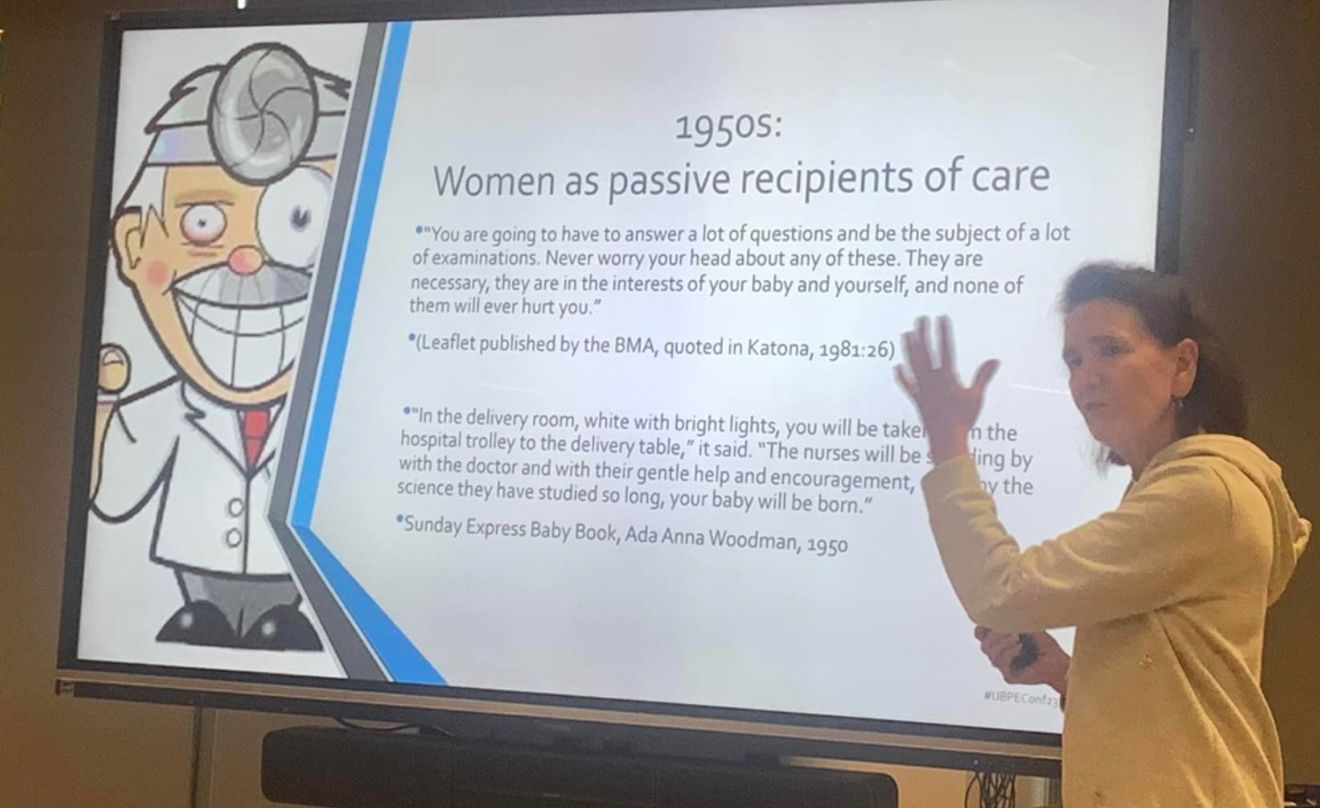
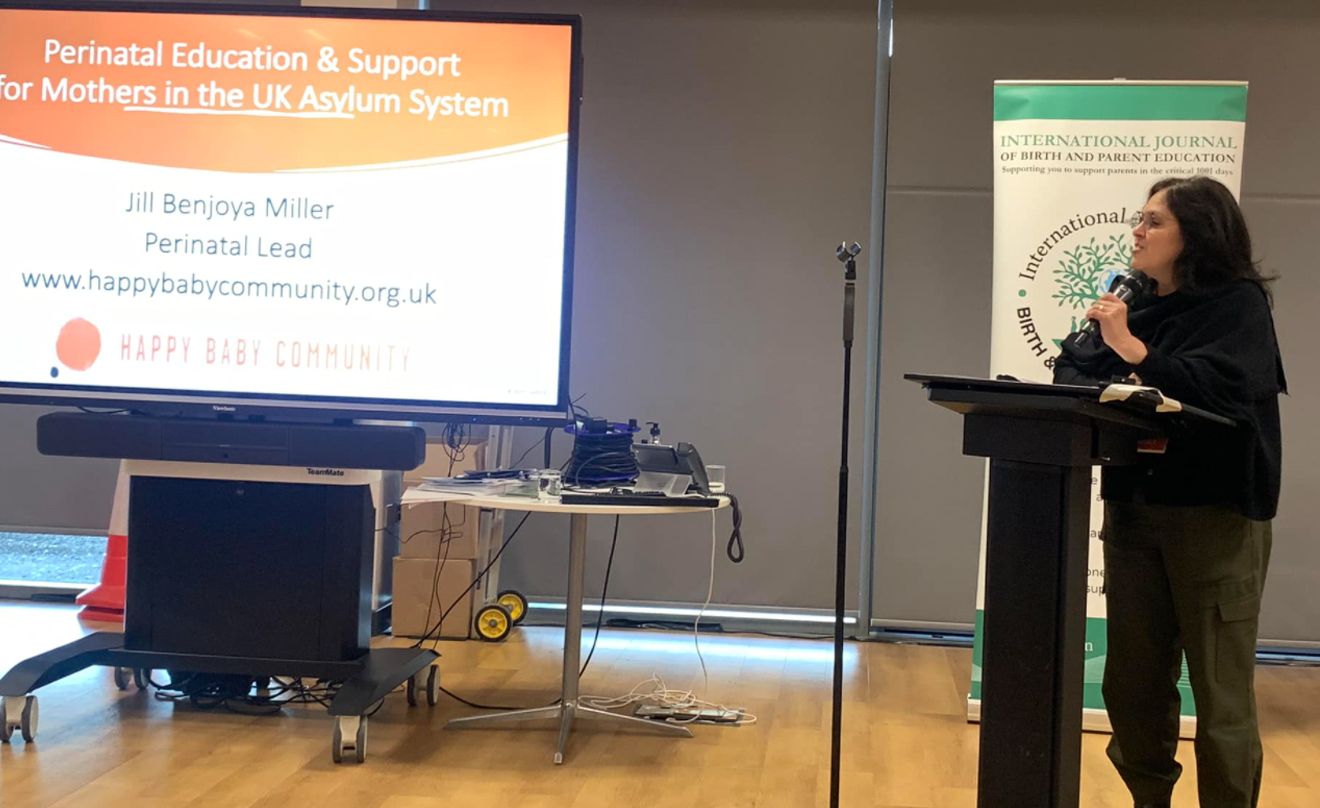
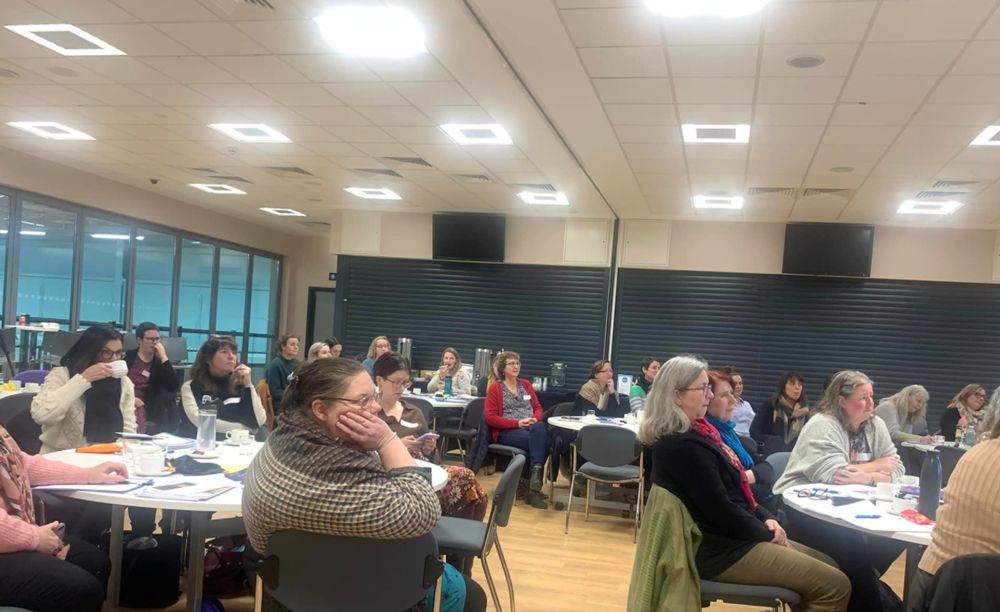
Lorna Philip
Lorna has over 30 years’ experience of working with young children and their families. She has been one of the most sought-after doulas in Birmingham, UK, and is the founder of the Black Mamas Village.
In her illuminating talk, ‘Working with Black Parents to Be’, Lorna challenged the audience about the accessibility of education and services for Black women. Both enjoyable and highly relevant, Lorna enriched the day with her commitment, insight and presence.
Sally Hogg
Sally Hogg, Early Childhood Policy Expert, Policy Fellow in the PEDAL Centre at the University of Cambridge, and friend of IJBPE since its inception, talked about the frightening impact of the COVID pandemic on babies and infants.
Since the start of the pandemic, she has been commissioning and gathering evidence on the effects of COVID 19 on infants and their families. In a powerful presentation, Sally talked about the negative impact on the language and social skills of children born during the pandemic, and their failure to meet developmental milestones.
She also noted the increase in abuse and neglect of children during the pandemic and regretted the fact that there is no longer a section of government with responsibility for babies and infants. She reminded us that the essence of our work is to keep babies in mind as some of the most vulnerable members of our society.
Professor Soo Downe
The final pre-lunch talk was given by Professor Soo Downe from the University of Central Lancashire. Soo explored the concept of normal birth post the recent Ockenden reports which have so shaken women’s confidence in the maternity services in England. What is a ‘normal’ birth and what do women and practitioners see as ‘normal’? What should we be teaching in our antenatal sessions? What does the evidence say that women and birthing people want? How does the language we use affect the message we are delivering and the outcome for women in terms of the choices they make and the births they have?
Drawing on the best evidence available, and her experience as a midwife, researcher and educator, Soo offered with balance and wisdom an overview of the modern maternity care system and of our role as educators within it.
Professor Gerard Hastings
Gerard Hastings’ powerful talk addressed the history of marketing infant formula. He explained how businesses achieve growth by creating demand and explained how infant formula companies ‘befriend’ parents, offering them support and reassurance in the guise of baby clubs, pregnancy information and free gifts in order to build trust in and sell their product. Formula marketeers see first time mothers as the ‘holy grail’. If mothers can be won over during their first pregnancy, they are likely to be loyal to the brand subsequently.
This was a sobering talk illustrating the means by which big business plays a significant part in the choices that women and their families make.
Jill Benjoya Miller
Jill Benjoya Miller, Perinatal Lead of Happy Baby Communities (HBC) in London, showcased the wonderful work of HBC in an illuminating talk entitled, ‘Perinatal Education and Support for Mothers in the UK Asylum System’. With trauma informed care at the centre of everything HBC does, it is a model for compassionate education in pregnancy and early parenting. Jill gave us an insight into the huge challenges faced by the women with whom she works and the difference that friendship and education can make to their experience of becoming mothers and of the first year of their babies’ lives.
Professor Mary Nolan
The final talk of the conference was by Professor Mary Nolan who reflected on ‘A Career in Childbirth and Early Parenting Education: 1985-2023’. Taking us through the decades, Mary examined the changing face of childbirth and childbirth education from the 1950s to the present day.
She charted the broadening of the remit of antenatal education from preparing women and their families for pregnancy and birth, to helping them build their earliest relationship with their babies. She reminded us, however, of the need for caution because whilst our understanding of the first 1000 days has increased incrementally over the last 30 years, there is still so much that we don’t know. She concluded by congratulating all the delegates on the work they are doing and wishing them the best for their future work.
